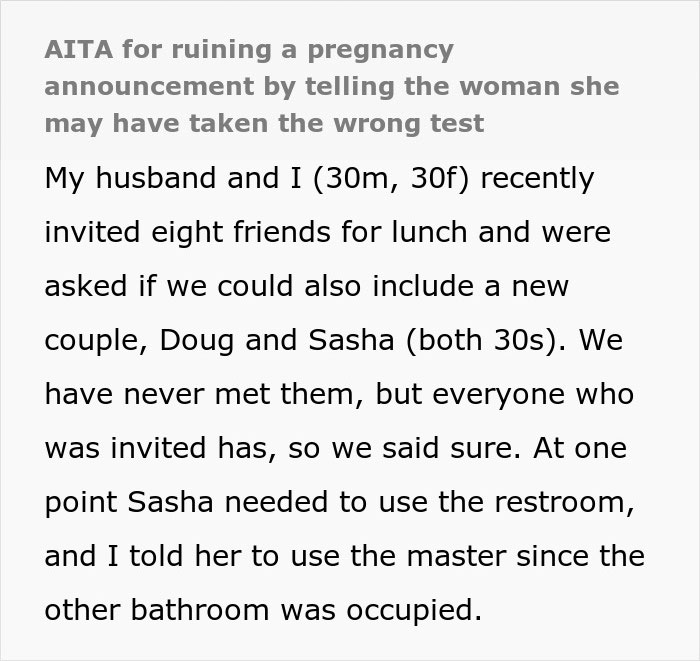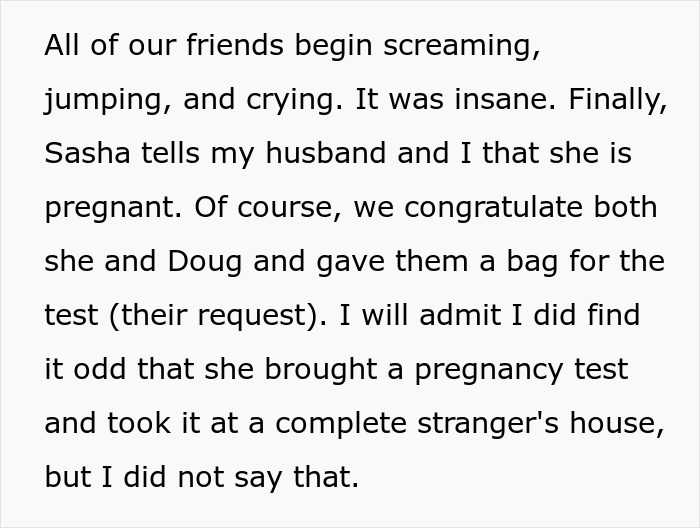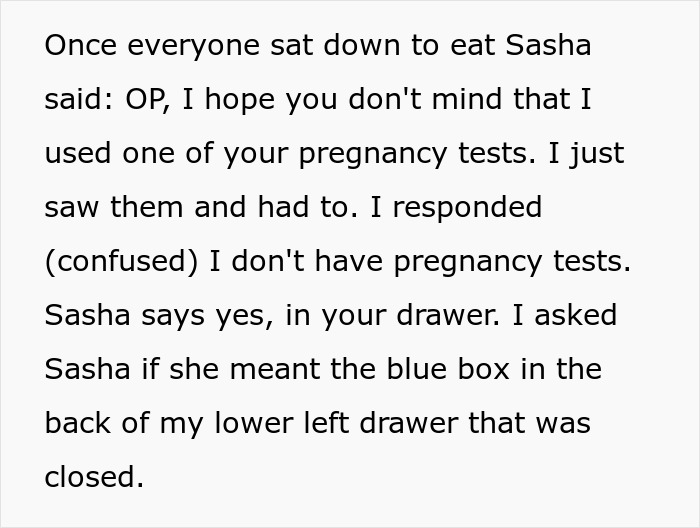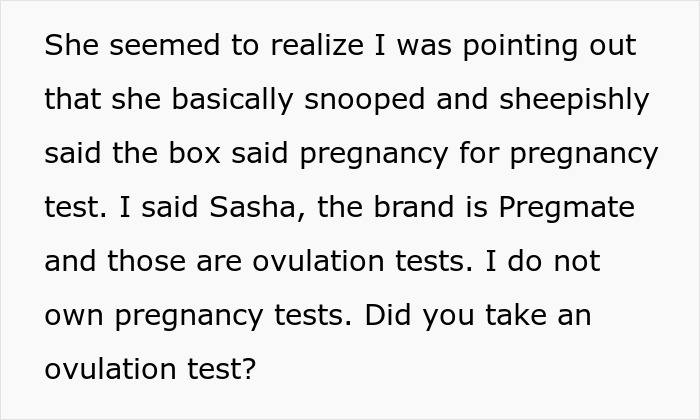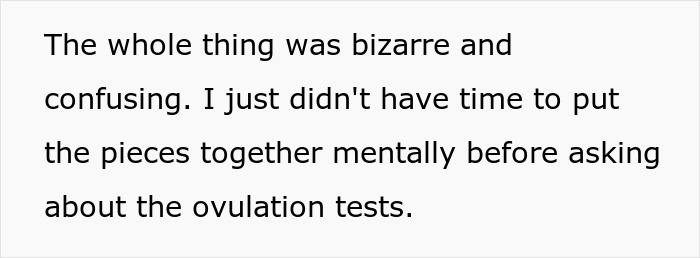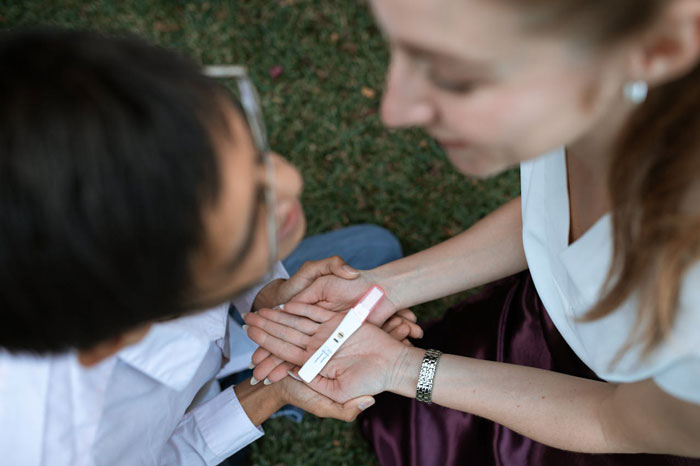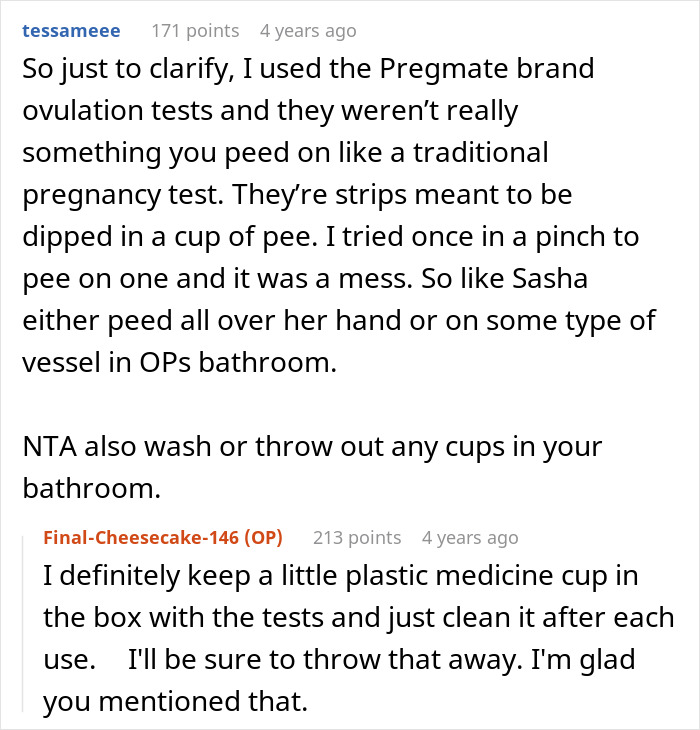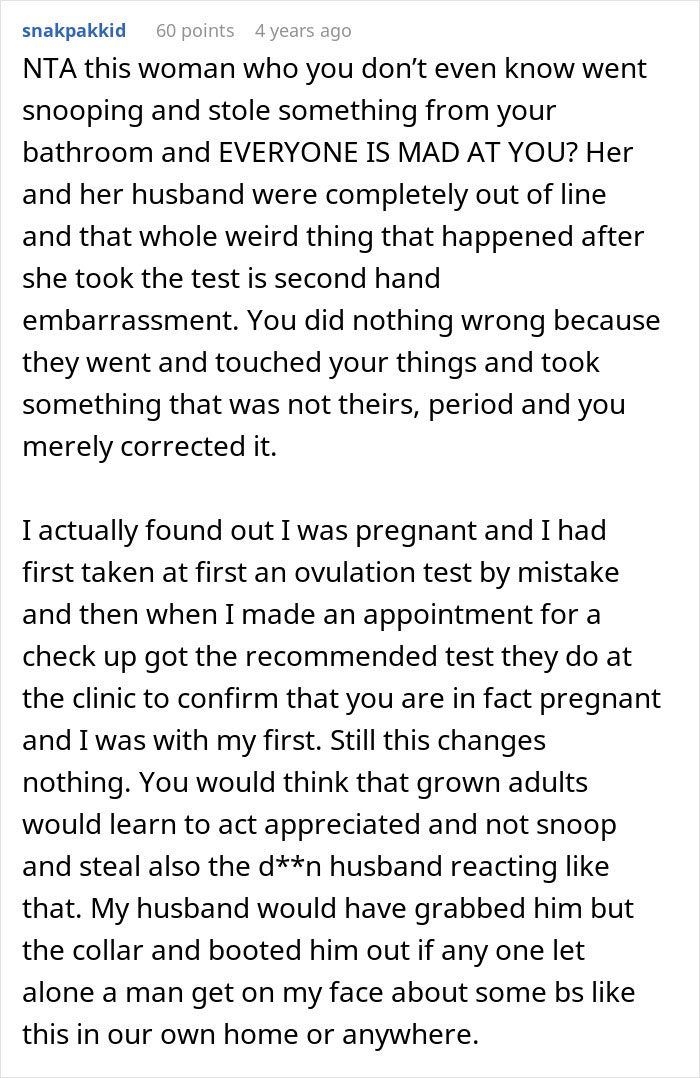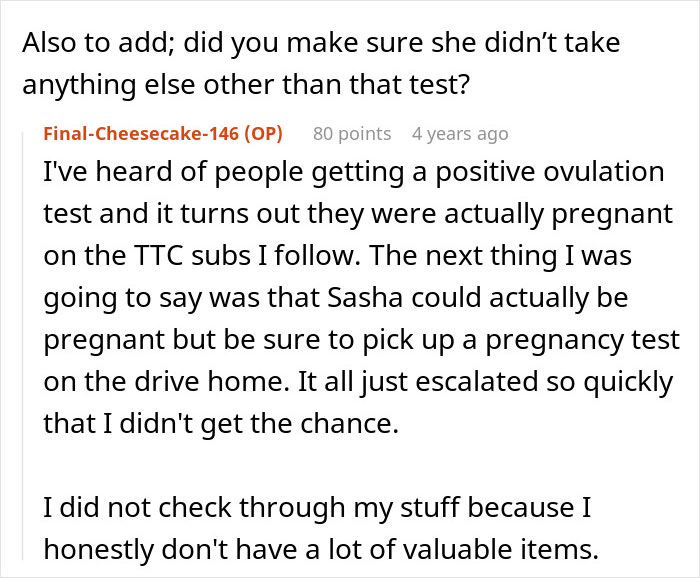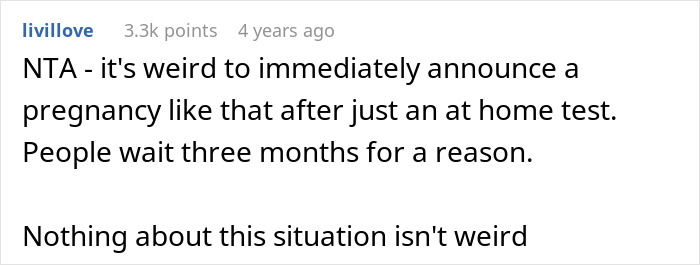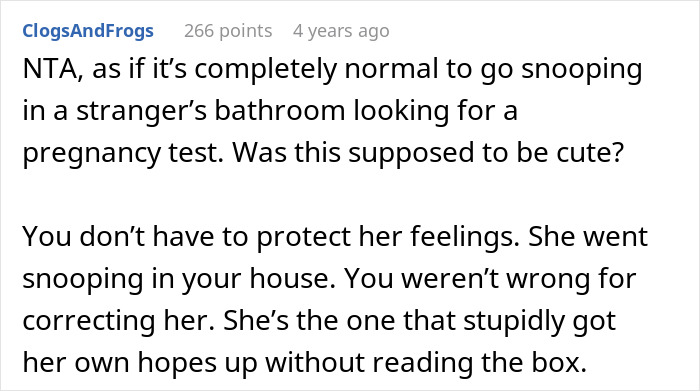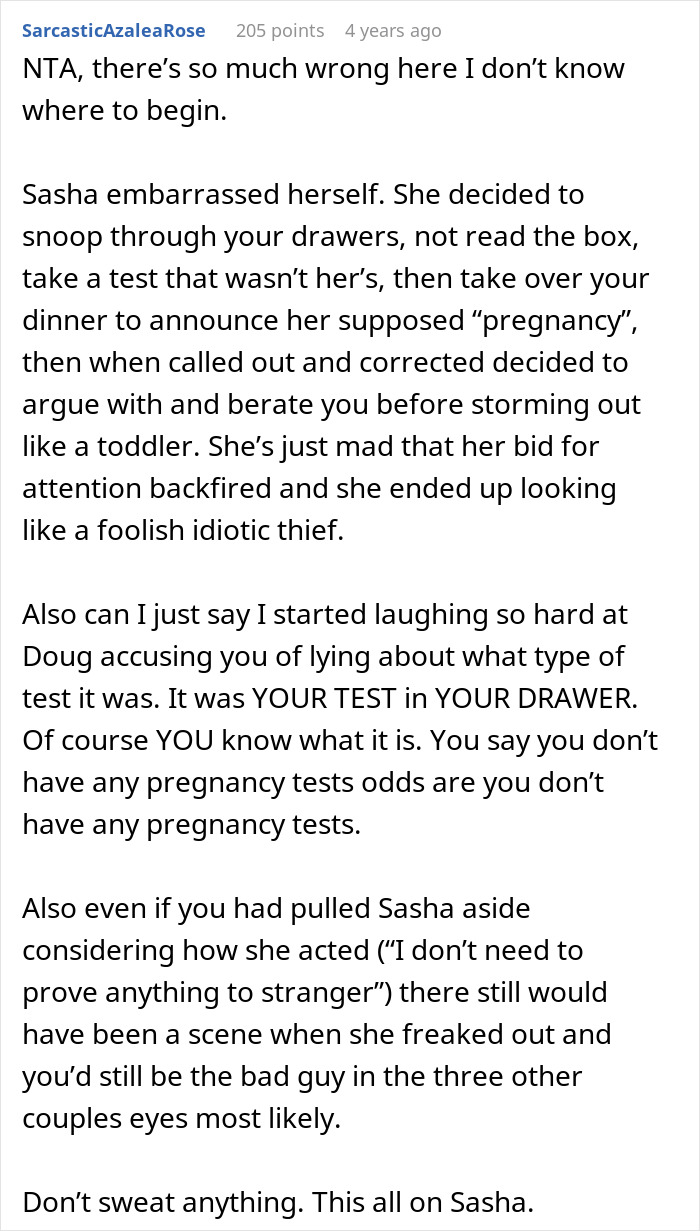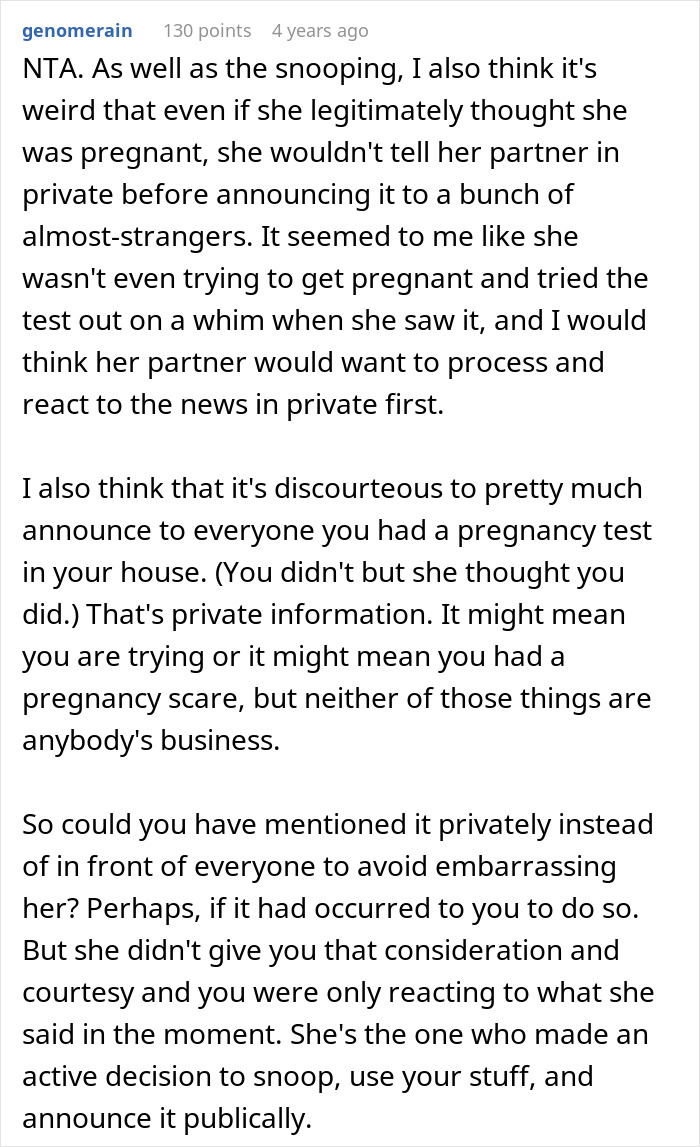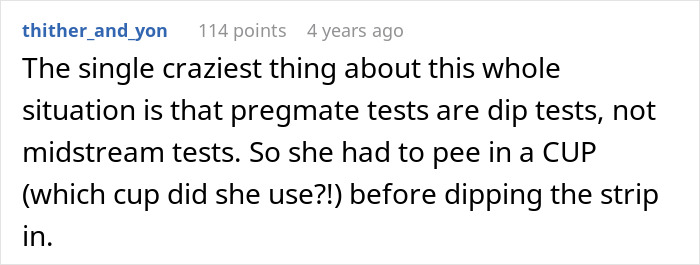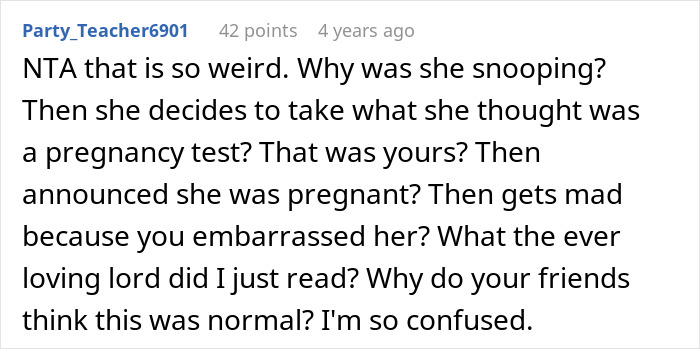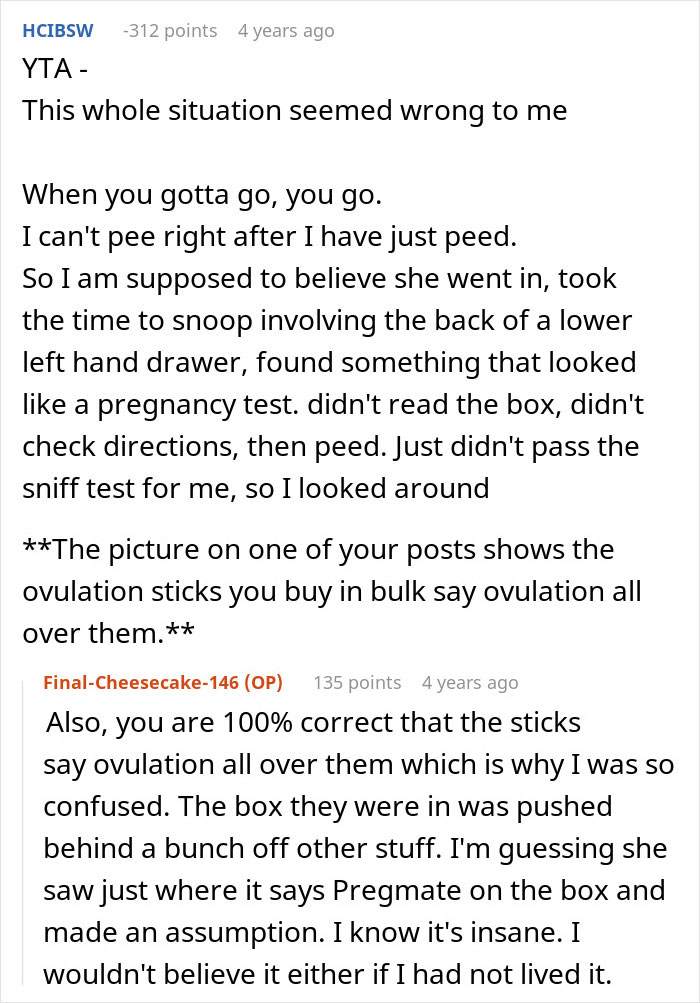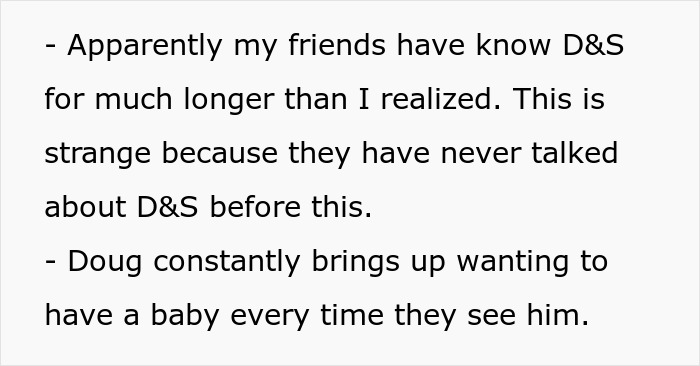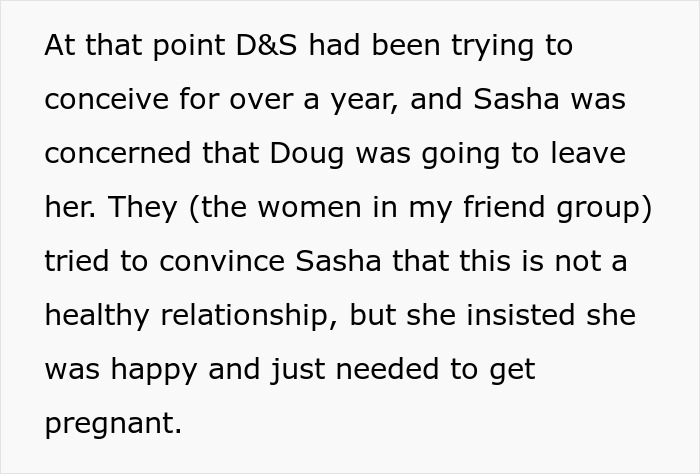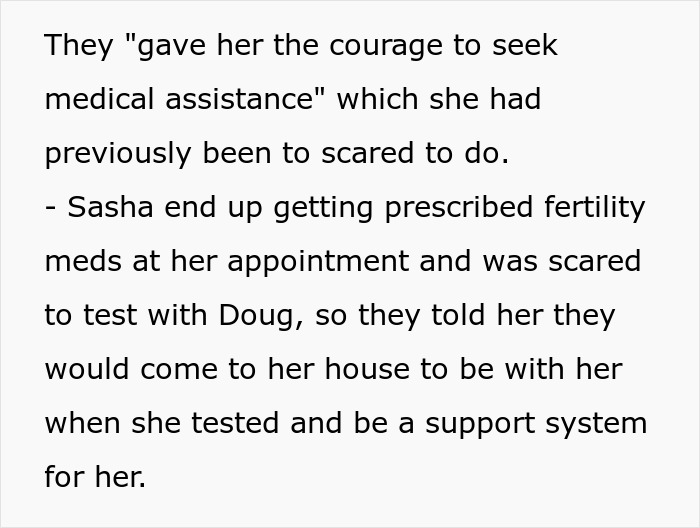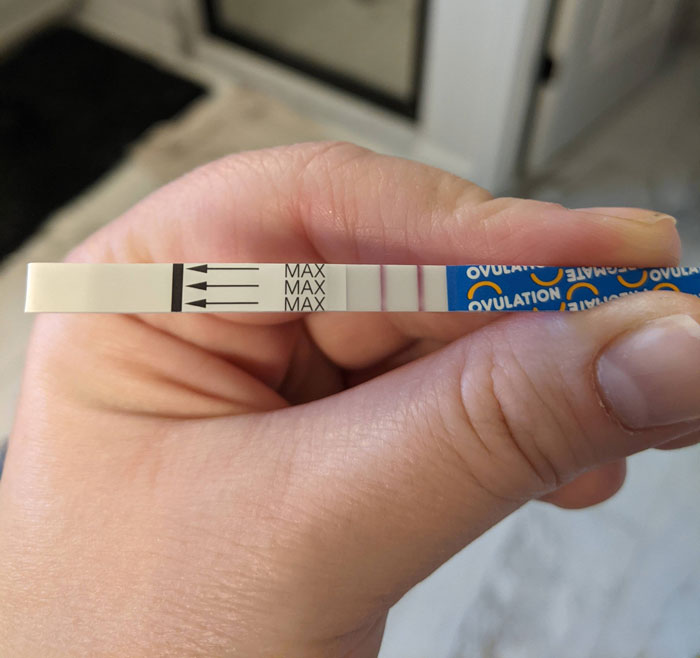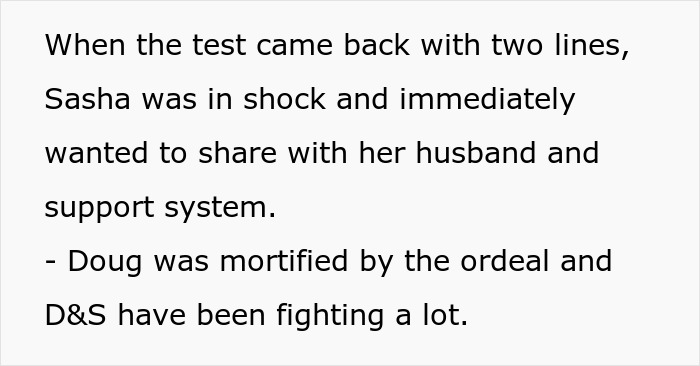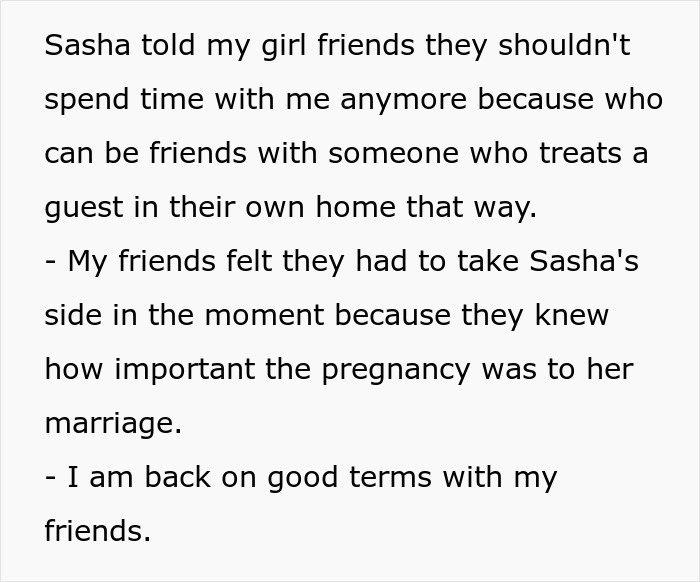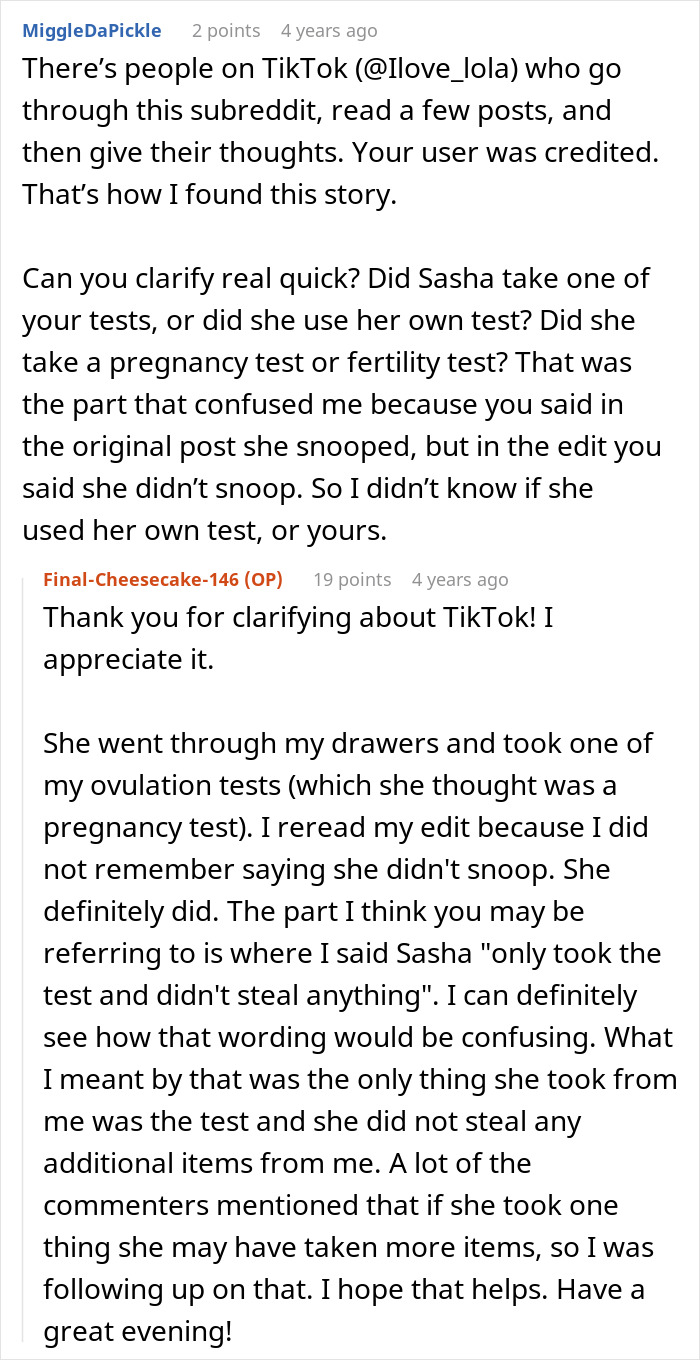“I Ruined Her Marriage”: Woman Announces Pregnancy At Lunch, Turns Out She Took The Wrong Test
Pregnancy announcements can take many forms these days. Some are shared in heartfelt posts online, others happen in intimate family settings, and many are carefully planned to make the moment feel special.
But one Redditor was taken aback when, during the lunch party she threw, a guest she hardly knew emotionally revealed she was expecting. The woman explained she’d just taken a test she found in the host’s bathroom drawer.
Setting aside the awkward fact that she snooped through someone else’s things, the bigger issue was that the test wasn’t even for pregnancy—it was something entirely different.
Once the host pointed that out, the joyful announcement crumbled and the party spiraled into full-blown drama. Read on for the story.
The woman proudly revealed she was expecting after taking what she thought was a pregnancy test
Image credits: Getty Images / Unsplash (not the actual photo)
But as it turned out, the lines she saw meant something else entirely
Image credits: Nataliya Vaitkevich / Pexels (not the actual photo)
Image credits: Yan Krukau / Pexels (not the actual photo)
Image credits: Final-Cheesecake-146
Image credits: RDNE Stock project / Pexels (not the actual photo)
What’s the difference between an ovulation test and a pregnancy test?
At first glance, the two can look surprisingly similar. Both may show two lines and both detect hormone changes, which is likely what confused the woman who used the test she found in OP’s drawer. But despite their similar appearance, they measure very different things.
So, what sets them apart? As Dr. Heather Soper, Certified Nurse Midwife, explains, the key difference lies in the hormones each test looks for.
Ovulation tests are designed to identify your fertile window—the time when your body is most likely to conceive. In simple terms, they detect when an egg has been released and is ready to be fertilized. Most ovulation tests measure the presence of LH (luteinizing hormone), while some also detect estrogen. Since a woman can only become pregnant once an egg is released, pinpointing this window can make conception more likely.
Pregnancy tests, on the other hand, check for an entirely different hormone: hCG (human Chorionic Gonadotropin), also known as the pregnancy hormone. This hormone is produced after a fertilized egg implants in the uterus and supports the early stages of pregnancy. Unlike ovulation testing, pregnancy tests are usually taken after a missed period or when other early symptoms appear.
Understanding ovulation can be tricky because every body works differently. In a typical 28-day cycle, ovulation happens around day 14, so testing often begins around day 10 or 11. But for shorter or longer cycles, the timing shifts.
For example, if your cycle is shorter, ovulation may happen just a few days after your period ends. If your cycle is longer, ovulation might come later, even while you’re still experiencing period symptoms. Having multiple ovulation strips on hand can help track these changes and pinpoint fertile days.
However, while ovulation tests are not designed to detect pregnancy, they can sometimes give a positive result if you are pregnant.
Dr. Jenna Beckham, obstetrician-gynecologist and complex family planning specialist with WakeMed Health and Planned Parenthood South Atlantic, explains: “While an ovulation test is not designed to detect pregnancy, you can get a false positive if you take an ovulation test when you are in fact pregnant.”
That’s because the hormone LH, which ovulation tests are designed to detect, is chemically similar to hCG, the hormone produced during pregnancy. As a result, ovulation strips may misread these levels and give a misleading result.
It’s worth remembering, though, that a positive ovulation test does not mean you’re pregnant, just as a negative one doesn’t rule it out. If you’ve missed a period, have symptoms, or suspect you could be pregnant, the best step is to take a pregnancy test after your period is late.
This article is for general context only, so if you have any questions about your own health, please speak with a qualified medical professional.
Some readers warned the author to check whether the guest had tampered with anything else in her bathroom
Others felt her reaction in the moment was completely justified
One commenter questioned how it was even possible to confuse an ovulation test with a pregnancy test
Later, the woman returned with a follow-up, sharing all the additional details that had come to light
Image credits: Los Muertos Crew / Pexels (not the actual photo)
Image credits: Final-Cheesecake-146
Image credits: Final-Cheesecake-146

